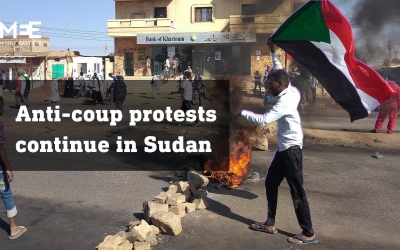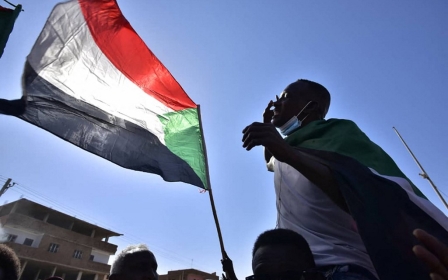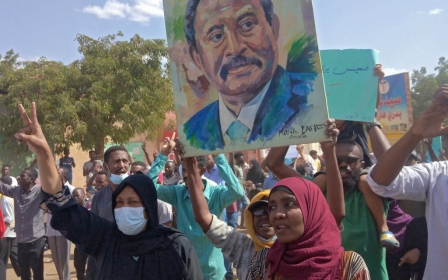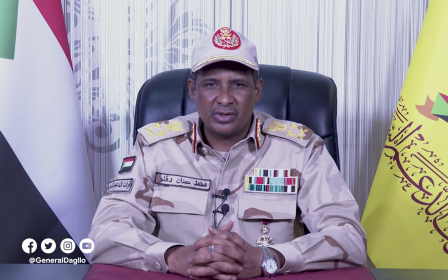Sudan coup: 15-year-old killed, security forces accused of using banned 'expanding bullets'
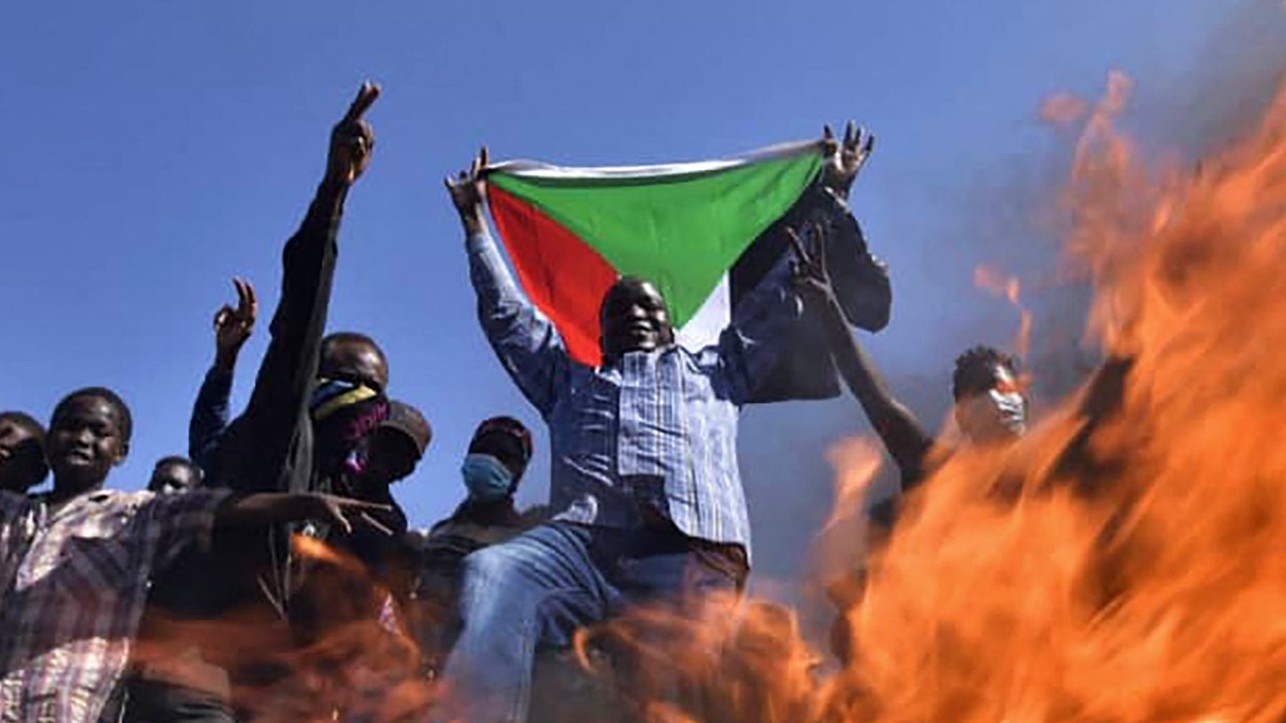
A 15-year-old Sudanese boy died on Sunday in a Khartoum hospital after being shot by security forces during Saturday's anti-coup demonstrations. The security forces were reported to have fired internationally outlawed "expanding" bullets on the crowd.
Mujahid Muhammad Farah succumbed to bullet wounds in his stomach and thigh on Sunday morning, according to the Khartoum state health ministry and Sudan's medical syndicate, bringing the number of people killed by authorities over the weekend to at least six.
Security forces fired on protesters on Saturday in a brutal crackdown on country-wide pro-democracy demonstrations, following three weeks of military rule, internet shutdowns and violence from authorities.
Army chief Abdel Fattah al-Burhan arrested Prime Minister Abdalla Hamdok on 25 October, along with several other key officials, and seized control of the country.
New MEE newsletter: Jerusalem Dispatch
Sign up to get the latest insights and analysis on Israel-Palestine, alongside Turkey Unpacked and other MEE newsletters
More than half a million people took part in Saturday's demonstrations in Khartoum alone, according to Middle East Eye's correspondent on the ground, Mohammed Amin, who said that at one point the march stretched on for more than 12 miles.
Protesters chanted anti-military slogans such as "the people want the fall of the regime", holding up pictures of Hamdok, now a symbol of resistance to military rule.
The protests came two days after the military formed a ruling council excluding the country's main civilian bloc.
As well as those killed, more than 40 people were seriously wounded, according to the Central Committee of Sudanese Doctors.
These included a 14-year-old girl who was shot in the head, according to a post on Saturday night from the Facebook page of the Khartoum state health ministry, which added that she was being treated in a hospital in the capital.
The weekend's deaths brings the total number of people killed since the coup began to at least 21, with hundreds wounded, though with almost-constant internet blackouts over the past three weeks, current casualty numbers may well be low.
Expanding bullets
Sudan's medical syndicate posted on its Facebook page on Saturday night that hospitals treating the wounded had seen evidence of security forces using "expanding bullets".
Known as dumdum bullets, these expand or flatten on impact and tend to cause more severe wounds that normal rounds. Shooting people with them is a war crime, according to the Rome Statute of the International Criminal Court.
Several demonstrators in Khartoum expressed shock at the speed of the heavy-handed response from security forces: they had waited until later in the day before trying to disperse protesters during previous rallies, including on 30 October, when a similar turnout was documented.
Mai, a civic activist and business owner in Khartoum, described armed forces shooting live rounds for at least three hours on the city's "Street 60" while she hid inside a nearby building.
"At some moments it was really intense," she said, describing how tear gas canisters were falling into the garden of the building she was sheltering in.
Meanwhile, demonstrations continued across the country, including in Port Sudan, the country's main commercial artery, which is owned by the military-controlled Sudan Sea Ports Corporation.
In Omdurman, troops loyal to General Burhan stormed Al-Arbaeen hospital, the Khartoum state health ministry announced on Facebook, assaulting the wounded as well as the medical staff.
Several hospitals put out urgent calls for blood to treat casualties in Omdurman - including at Arbaeen - and Khartoum.
During the afternoon, Sudan's police force said on state TV that its officers had not used live fire against protesters, conflicting with reports on the ground.
According to the police, the protests began peacefully, but 39 policemen were later wounded and stations were attacked, triggering arrests.
The Central Committee of Sudanese Doctors said demonstrations faced "excessive repression using all forms of force including live bullets in several areas of the capital Khartoum".
Middle East Eye delivers independent and unrivalled coverage and analysis of the Middle East, North Africa and beyond. To learn more about republishing this content and the associated fees, please fill out this form. More about MEE can be found here.


